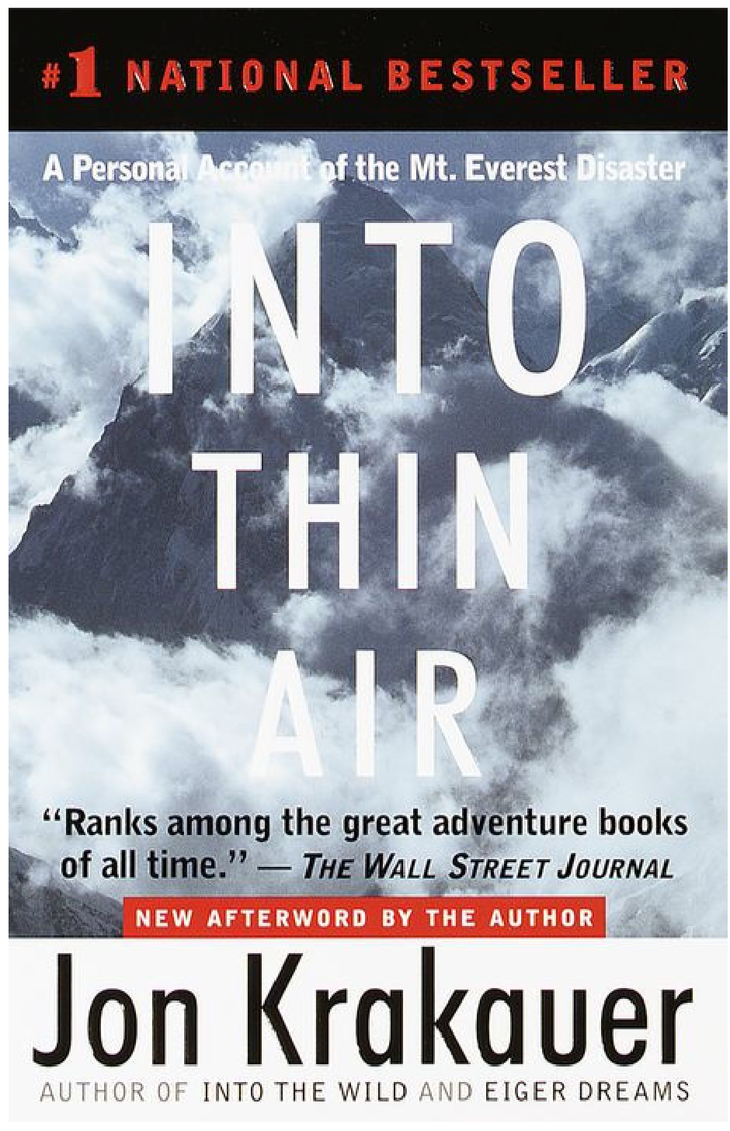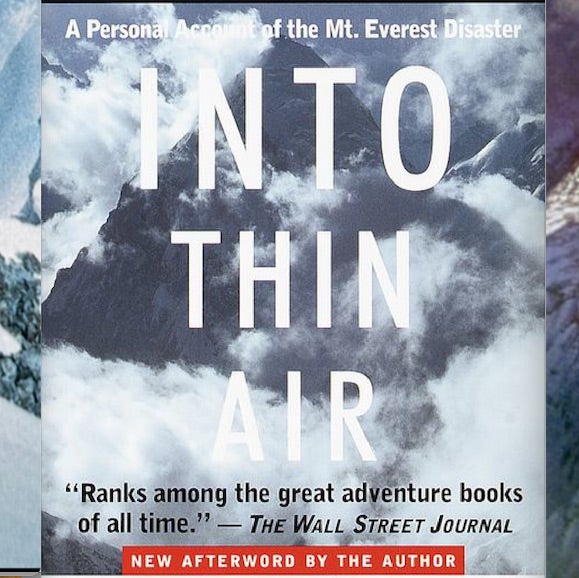Bestselling author Jon Krakauer is hitting back at a vocal online critic.
On Thursday, February 6, Krakauer, 70, that he will publish an and about his bestselling book Into Thin Air: A Personal Account of the Mt. Everest Disaster.

The purpose of the project, Krakauer told ���ϳԹ���, was to refute what he calls “egregious allegations” made by a . In 2024, Tracy, a California lawyer, recorded a series of his own videos to YouTube that called into question multiple elements of Krakauer’s book.
“I believe standing up for the truth is a moral imperative, even when doing so takes a personal toll and is likely to fail,” Krakauer told ���ϳԹ���. “If you watch my videos, or read the text versions, I’m pretty sure you will see why I took the trouble to post them.”
In his Instagram post announcing the project, Krakauer called Tracy’s videos “bullshit” and an “irresponsible misrepresentation of what happened on Everest in 1996.”
In a statement provided to ���ϳԹ���, Tracy refuted the claim. He said that Krakauer’s video series simply creates “more confusion” around the Mount Everest disaster. “Krakauer has already agreed to make numerous revisions to his book and this undermines the claim that my videos are bullshit,” he wrote.
Into Thin Air is Krakauer’s first-person account of the deadly 1996 climbing season on Everest, when 12 people died on the mountain, the most in a single season up to that date. Krakauer joined a guided ascent while reporting a story for ���ϳԹ��� about the growth of commercial expeditions to the peak. He climbed Everest with the guiding company ���ϳԹ��� Consultants, which was led by New Zealand mountaineer Rob Hall, and he reached the summit on May 10.
But a storm battered the peak shortly after Krakauer and others began their descent, and in the ensuing melee eight climbers and guides, including Hall, perished. Krakauer and others were able to safely descend.
Krakauer’s account ran in ���ϳԹ��� in September 1996, and the first edition of the book was published in April 1997.
The book garnered international acclaim upon its release, and it hit number one on the New York Times bestseller list. In 1998 it was a finalist for the Pulitzer Prize in the General Nonfiction category. The book was adapted as a TV movie in 1997, and it became the basis for the 2015 Hollywood film Everest.
But Krakauer’s account was also subject to criticism and pushback upon the book’s release. In 1997, a Russian climber named Anatoli Boukreev, who was also on Everest in May 1996, co-authored his own version of events in a book titled And over the years, other writers and Internet commenters have sought to debunk elements of the story.
Tracy launched his YouTube channel in 2018 as a way to explore the mysterious 1924 disappearance of climbers George Mallory and Andrew “Sandy” Irvine on Mount Everest. But in April 2024, he published a video titled “” that generated 80,000 views. Tracy went on to record 17 total videos about the book, including ones titled “Correcting the Record on Krakauer’s Statistics,” and “Response to Jon Krakauer: The Subtle Art of Misdirection.”
“Krakauer has admitted numerous substantial errors in his book and previous interviews,” Tracy wrote to ���ϳԹ���. Tracy sent ���ϳԹ��� a of mistakes he says are in the book. In Krakauer’s first video, he admits that Tracy’s sleuthing pointed out inaccuracies in the book, and that he intends to update future editions to address them.
But Krakauer’s videos also present point-by-point rebuttals to Tracy’s more serious assertions. The first video, titled “” addresses the impact that bottlenecks had on the ascent.
After Krakauer announced the YouTube series, a handful of prominent mountaineers and journalists voiced their support in the comments section on his Instagram page.
“Words matter. I’m glad you are defending yours but I’m sorry you have to,” wrote Melissa Arnot Reid.
“Jon, I truly believe that you did your very best to tackle this challenging story,” wrote climber Ed Viesturs, the first American to ascend the world’s 14 highest peaks. “You were meticulous in piecing together this complicated event and did your due diligence.”
Viesturs, 65, was also on Everest during the 1996 climbing season and helped rescue some of the survivors from the storm. “Into Thin Air is still the definitive account of the events on the Everest in the spring of 1996,” Viesturs added.
Others, however, are curious why Krakauer has chosen to acknowledge Tracy.
Scott Carney, an investigative journalist, told ���ϳԹ���, “By Krakauer calling attention to this, he’s raising Tracy’s profile. It seems counterproductive.”
But Krakauer told ���ϳԹ��� that sometimes journalists should address their online critics. “These days, people seem way too willing to surrender the online discourse to domineering [people] trying to gaslight us,” he said.


